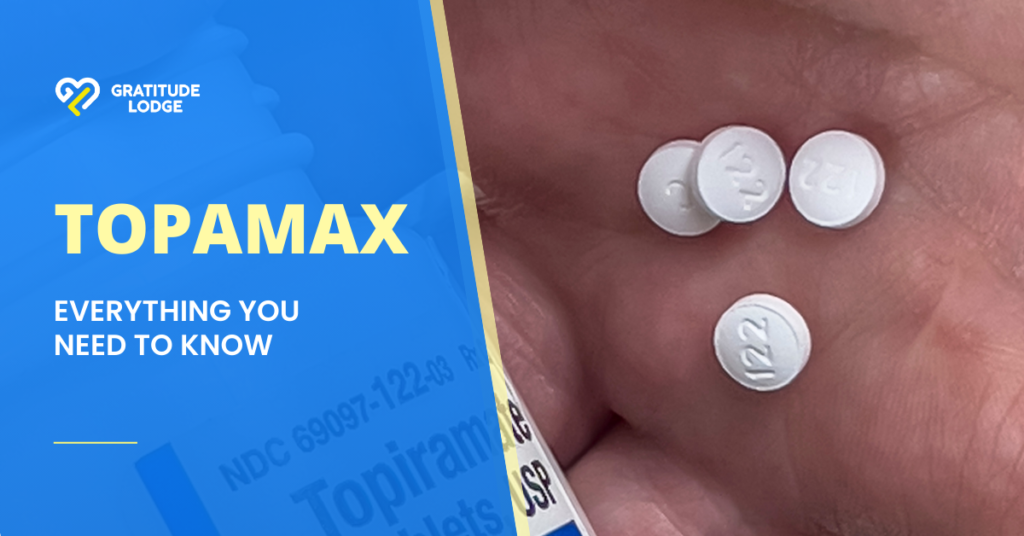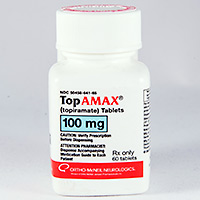Understanding Topamax (Topiramate): Uses, Side Effects, and Potential Risks
Topamax (topiramate) is a prescription medication commonly used to treat epilepsy and prevent migraines. Though it can be effective in managing these conditions, some individuals report experiencing severe side effects that have negatively impacted their lives. This article delves into the uses, potential side effects, and risks associated with Topamax, as well as its impact on overall well-being.
What Is Topamax?
Topamax, also known by its generic name topiramate, is an anticonvulsant medication. It is primarily used to manage seizures in individuals with epilepsy and to prevent migraines in adults and adolescents. Healthcare providers may also prescribe Topamax for off-label uses, such as for mood stabilization in individuals with bipolar disorder or as part of weight loss treatment plans. It is essential to take Topamax under the supervision of a healthcare professional due to its wide range of potential side effects.
 How Does Topamax Work?
How Does Topamax Work?
Topamax works by stabilizing electrical activity in the brain, which helps prevent seizures and reduces the frequency of migraines. It achieves this by modulating neurotransmitters: it increases the activity of GABA (an inhibitory neurotransmitter) while decreasing the activity of glutamate (an excitatory neurotransmitter). This balance helps prevent abnormal brain signals that lead to seizures and migraines, although the exact mechanism for migraine prevention is not fully understood.
Common Uses of Topamax
Topamax is FDA-approved for several conditions, including:
- Epilepsy: Topamax is used to control seizures in adults and children aged 2 and older.
- Migraine Prevention: It is used to reduce the frequency of migraine headaches in adults and adolescents aged 12 and older.
- Lennox-Gastaut Syndrome: This is a specific form of epilepsy, and Topamax can help treat seizures associated with it.
Topamax Side Effects: What to Expect
While Topamax is effective for many individuals, it is associated with a variety of side effects, some of which can significantly impact daily life. These side effects can range from mild to severe, and it is crucial for anyone taking the medication to monitor their symptoms and report any adverse reactions to a healthcare provider.
Cognitive Impairment
One of the most concerning side effects of Topamax is cognitive dysfunction. Many users report difficulty with memory, concentration, and overall mental clarity. This can be especially troublesome for individuals whose daily lives depend on cognitive function, such as students, professionals, or caregivers. The cognitive side effects can manifest as:
- Memory lapses
- Trouble concentrating
- Mental fogginess
Mood Changes
Topamax can alter mood and emotional well-being, with some individuals experiencing increased depression, anxiety, or irritability. For those already struggling with mental health conditions, these mood changes can exacerbate existing issues and make it harder to manage day-to-day responsibilities. This impact on mental health is particularly troubling for people who rely on stable emotional well-being to function effectively in their personal and professional lives.
Physical Symptoms
Some physical side effects of Topamax can significantly affect quality of life. These include:
- Dizziness and Fatigue: Persistent feelings of lightheadedness or extreme tiredness can make it difficult to perform routine tasks.
- Taste Disturbances: Many users report a change in the way food and drinks taste, which can lead to a loss of appetite.
- Unwanted Weight Loss: Although some people may want to lose weight, unintended and excessive weight loss can be concerning. This can lead to nutritional deficiencies and a general sense of weakness.

Serious Health Risks
In rare cases, Topamax can cause more serious side effects, such as:
- Glaucoma: This condition involves increased pressure in the eye, which can lead to vision problems and, if left untreated, permanent vision loss.
- Kidney Stones: Topamax has been linked to the formation of kidney stones, which can be painful and require medical attention.
- Metabolic Acidosis: This condition, which affects the body’s acid-base balance, can lead to symptoms like fatigue, loss of appetite, and irregular heartbeats.
How Long Does Topamax Stay in Your System?
Topamax has a relatively long half-life of 19 to 25 hours, meaning that it takes about a day for half of the drug to be eliminated from the body. However, it may take several days for the medication to clear entirely, depending on factors such as individual metabolism and kidney function.
Dosages of Topamax
The dosage of Topamax varies based on the condition being treated and the age of the patient. Below are the typical dosages:
- Epilepsy:
- Adults and Children (10 and above): Starting dose is 25 to 50 mg once daily, with a maintenance dose of 200 to 400 mg per day.
- Children (2 to 9): Starting dose is 25 mg or less once nightly, with a maintenance dose of 5 to 9 mg/kg per day.
- Migraine Prevention:
- Adults: Starting dose is 25 mg once nightly, with a maintenance dose of 100 mg per day.
- Adolescents (12 and above): Dosages are similar to those for adults.
Topamax should be titrated slowly to minimize side effects. It is also important to stay well-hydrated while on the medication to reduce the risk of kidney stones.
Can Topamax Be Addictive?
Topamax is not classified as a controlled substance, and it is not considered addictive. However, like many medications, sudden discontinuation can cause withdrawal symptoms. These can include headaches, nausea, insomnia, and anxiety. To avoid withdrawal symptoms, it is essential to taper off the medication gradually under medical supervision.
 Alcohol Use and Topamax
Alcohol Use and Topamax
Consuming alcohol while taking Topamax can intensify certain side effects, including dizziness, drowsiness, and difficulty concentrating. Additionally, alcohol use may increase the risk of seizures. Therefore, it is advisable to discuss alcohol consumption with a healthcare provider while taking this medication.
Managing the Impact of Topamax Side Effects
For individuals who feel that Topamax has negatively impacted their lives, it is important to seek support and address the side effects appropriately. Here are some strategies to consider:
- Monitor and Report Symptoms: If you experience any troubling side effects, it is vital to communicate these to a healthcare provider. They can help adjust the dosage or explore alternative treatments.
- Consider Alternative Therapies: If Topamax is not effective or its side effects are unbearable, there may be alternative medications or therapies that can better manage your condition with fewer adverse effects.
- Support for Mental Health: If mood changes such as depression or anxiety occur, seeking support from mental health professionals can help provide coping strategies.
- Gradual Discontinuation: If discontinuing Topamax is necessary, it should be done gradually, under professional supervision, to minimize withdrawal symptoms and potential complications.
Conclusion
Topamax is a medication that can be life-changing for those suffering from epilepsy and migraines. However, it comes with a range of potential side effects, some of which can severely affect an individual’s quality of life. Understanding how the medication works, recognizing potential side effects, and managing them effectively are critical steps in making informed decisions about treatment. If you feel that Topamax has caused harm to your life, it is essential to seek help and discuss your concerns with a healthcare provider to explore the best path forward.
Frequently Asked Questions (FAQ) About Topamax
1. Do Topamax Side Effects Go Away?
Topamax side effects may diminish over time as your body adjusts to the medication. However, some individuals continue to experience adverse effects throughout their treatment. If you are experiencing persistent or intolerable side effects, it’s important to speak with a healthcare provider. They may adjust your dosage or suggest alternative medications to manage your condition effectively.
2. Is Topamax a Narcotic?
No, Topamax is not a narcotic. It is classified as an anticonvulsant medication, primarily used for managing epilepsy and preventing migraines. Narcotics are typically associated with pain relief and carry a higher risk of misuse and addiction, which does not apply to Topamax.
3. Is Topamax a Controlled Substance?
No, Topamax is not considered a controlled substance by the Drug Enforcement Administration (DEA). While it is not classified as addictive, some individuals may experience dependency if the medication is stopped abruptly, which is why it should always be tapered off gradually under medical supervision.
4. Can You Get Withdrawals from Topamax?
Yes, withdrawal symptoms can occur if Topamax is stopped suddenly. Symptoms may include headaches, nausea, insomnia, anxiety, and dizziness. To avoid withdrawal, it’s crucial to work with a healthcare provider to gradually reduce the dosage when discontinuing the medication.
5. How Long Does Topamax Stay in Your System?
Topamax has a half-life of 19 to 25 hours, which means it typically takes about a day for half of the drug to be eliminated from the body. However, it can take several days for the medication to fully clear from your system, depending on factors like metabolism, kidney function, and dosage.
6. Can Topamax Affect Your Pregnancy?
Topamax may not be safe to use during pregnancy. It has been associated with an increased risk of birth defects, including cleft lip and cleft palate. If you are pregnant or planning to become pregnant, it is essential to consult your healthcare provider about the risks and alternatives to Topamax.
7. Is Topamax Addictive?
Topamax is not considered addictive and is not classified as a controlled substance. However, misuse of the medication or stopping it abruptly can lead to withdrawal symptoms. It is essential to follow the prescribed dosage and consult a healthcare provider before discontinuing the medication.
8. Can Topamax Help with Anxiety?
Topamax is not approved to treat anxiety disorders. While it is sometimes used off-label for mood stabilization in conditions like bipolar disorder, it is not a primary treatment for anxiety. If anxiety is a concern, it is important to explore other treatment options with a healthcare provider.
9. Can Topamax Cause Weight Gain?
Topamax is more commonly associated with weight loss rather than weight gain. Some individuals may experience a loss of appetite, leading to unintended weight loss. If weight changes are a concern, it is important to discuss these effects with your healthcare provider to find appropriate solutions.






